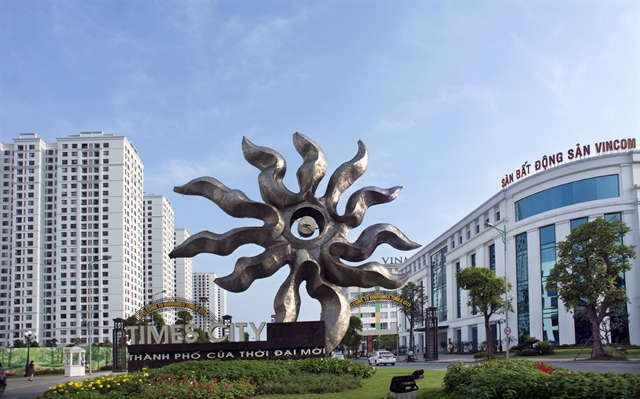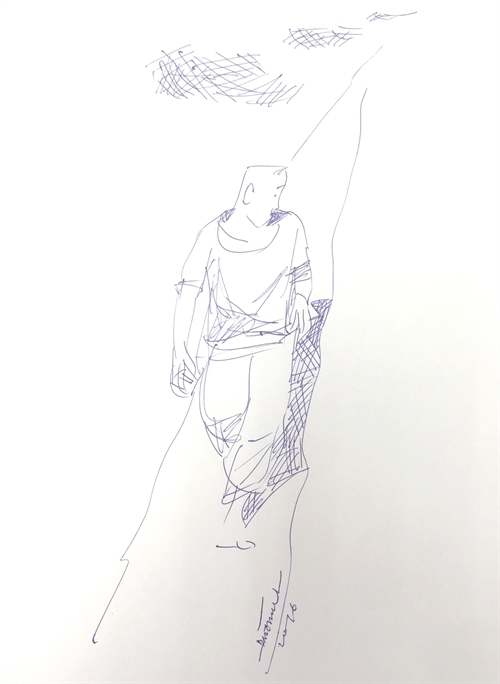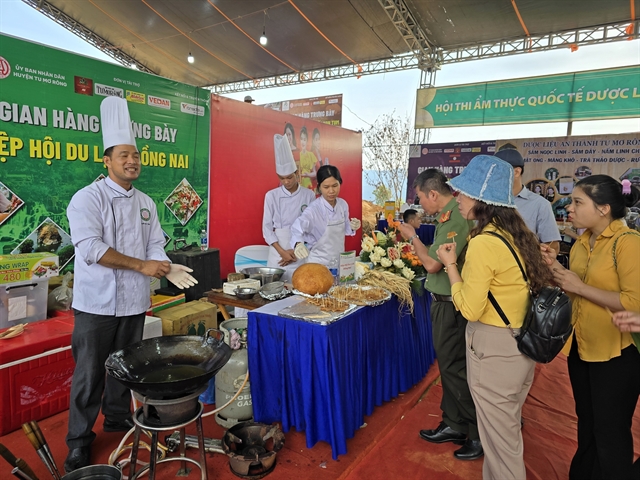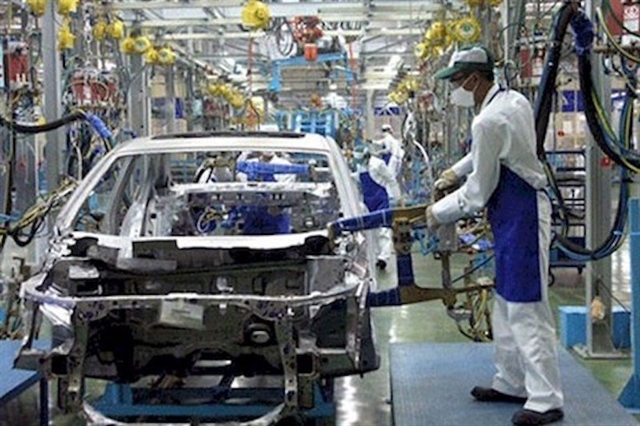

" />A short story by Hoàng Hiền
 |
by Hoàng Hiền
This story happened nearly 20 years ago. It was the end of spring and the drizzling had started tapering off. The family’s big pile of wet straw gave off such an unpleasant smell that the cows refused to eat it. That day, by order of his father, little Trung led one of the animals out of the shed to graze on vast grasslands by the dyke embankment.
In the fine spring weather, his domestic cattle savoured the tender grass after so many days of chewing dry stuff. In order to free his hands, Trung tied the animal up, then stepped up to the top of the dyke and peered over the open field. Near his place, there was a large orchard of oleasters. Reaching the garden, he found countless ripe fruits. They looked like tiny red lanterns hanging among the canopies. Immediately, he picked them and enjoyed them to his heart’s content. He chose some of the best fruits to take home for little Mây from the neighbourhood. Thinking of her sparkling eyes, he smiled.
All of a sudden, he remembered his cow on the other side of the dyke. At once he ran away to look for it. Strangely, it was nowhere to be seen. He searched high and low for a long while. At last he found it in a ricefield far from his hamlet. To his surprise, a lot of rice plants in bloom had been trampled underfoot. He had just begun to guide the cow away by means of a strong rope when he was stopped by Mr Uy of his neighbourhood. The old man caught him red-handed and pinched his ear hard. At once, he dragged both Trung and his animal to the trespasser’s house.
Standing in front of Trung’s dwelling, the old man called his father’s name loudly. He left Trung’s place only when he had received a fairly small sum of money together with Trung’s mother’s promise to compensate him for an equivalent amount of paddy during the coming harvest. After that, Trung’s father gave him a good thrashing for hours. Taking advantage of her husband’s abrupt break to go outside, she told her son, “Go to Uncle Viên’s place right now for a few days until your dad’s fury is over.”
Immediately, Trung ran away along the dyke. Half an hour later, his father followed suit. Thinking that his father would take a long time to catch him, Trung rolled down the dyke embankment, hid himself amid a mulberry grove then lay motionless there until his father passed by, calling out his son’s name loudly in vain. Soon Trung fell asleep. When he woke up, it was already twilight and farmers were going home. Instead of coming to stay at Uncle Viên’s for a few days, he went straight to the ferry out of shame. Crossing the river, he walked to Mr Thắng’s house. Unfortunately for him, this motor taxi driver was away. At an impasse, he took an inter-city coach southbound with no clear destination in mind.
“Where to?” asked the ticket collector.
Trung only shook his head.
“Excuse me. Have you got anything for me to eat? I’m very hungry,” Trung asked him instead of answering. Hào, an assistant to the driver, tossed a loaf of bread and bottle of water to him with a sympathetic smile, knowing that the little boy had no money on him. After finishing his frugal meal, Trung fell asleep right in the narrow aisle between the two rows of seats.
“Dear passengers, our coach has arrived in Huế City,” declared the assistant.
His loud voice awoke Trung.
“Where’s Huế, mate?” Trung asked him.
“Such a locality means nothing to you, my little vagabond. We’ll give you a lift to the bus terminal in Sài Gòn.
* * *
That day on the coach, Trung decided that when it returned to the North he would return home. But poor him, he got lost at that bus interchange. When he met Hào later, he learned that he had been away from home for nearly one month – not a few days as his mother had told him. Then month after month, year after year, unexpectedly he had remained in the South for 20 years. After leaving home, he regretted that all his childhood playthings had been left behind such as rubber rings, marbles and tops. They were very dear to him and attracted him far more than schooling. He feared they might be thrown away by his stern father.
“I’ve led a miserable life due to illiteracy,” his father told him one day. “Now you must do well at school so that later you might enjoy better days thanks to your good knowledge and skills,” he went on.
Therefore, he punished Trung very severely when he did not get full marks at school. He gave him a lot of whippings, locked him in when the moon was full, prohibited him from playing hide-and-seek behind huge piles of straw beside the village path, and prevented him from playing sham battles with his friends and attending artistic performances on a large courtyard in front of the hamlet’s communal house.
* * *
Now that he was away from home, he missed the shrimp roasted with star fruit and corncobs roasted with sugar served during a heavy rain. What he thought of the most was his father’s back crisscrossed with scars from when he went with a fishing net to catch prawns on winter nights near clusters of bamboo trees full of pointed thorns. Worse still, the whole family had to eat the unsold ice creams he brought home after a rainy day as an unsuccessful street vendor.
Come what may, Trung was unable to return home with empty hands after so many years of practising different trades: a driver’s assistant in loading and unloading goods, a mason coolie at construction sites and finally a vegetable dealer in suburban markets from dawn to dusk.
Over the past 10 years, many northerners of various provinces of Tuyên Quang, Hải Dương, Thái Bình and so on had settled down in the South of the country. As a result, goods, foods and fruits of the North – persimmons, pears, apricots, plums, yams, sticky rice cakes, green rice flakes, dry vermicelli and sundry other items – were available in shops and markets. That was before Tết when Trung was told by his father to take the family cow to graze on the dyke embankment that morning.
* * *
Once, when his sweetheart Dung, whom he had cohabited with for years out of wedlock, asked him why he had not yet returned to his hometown in the North, he told her his sad story in a bitter voice. After listening to stories from this period of his life, full of ups and downs, she burst into tears. In the meantime, Trung caressed her back and let out a sigh.
“Later, if anything goes wrong between us, we should try to forgive each other’s faults. Let bygones be bygones, you see, my darling. Our children should be brought up otherwise,” he said to her.
At that moment, it was past midnight. The noises made by the motorbikes of butchers passing by his door forced him awake. Turning onto his side, he tried to sleep, but all his efforts were in vain. He thought and thought about the poorly educated kids of the market hamlet, about their food placed on small tools close to the pavement when they had meals while looking after their parents’ stalls. They seemed indifferent to what happened around them. He also shuddered to think about the icy looks of the children who all day long eked out their living without giving a second thought to their native places.
As for him, who had stayed away from his parents for years, the path to his hometown seemed more remote and inaccessible. He remembered how Hào, the driver’s assistant, who that day gave him a loaf of bread and a bottle of water, had accidentally become his messenger, often dropping in on him to relax while waiting for his vehicle to undergo maintenance after a long southbound trip.
“I’ve never found any guy as strange as you,” he told Trung one day. “You might come home, though out of shame, on any day then leave if you feel it’s unbearable. Why are you so anxious about your expected homecoming?” he went on.
On his friend’s advice, Trung said nothing. Perhaps Trung was not an adventurous guy. Although he had experienced a lot of seasons, both sunny and rainy; stayed in many regions, both modern and backwards; and met all types of people, both humane and uncivilised, he had never found a safe place to settle down. His dream house remained something beyond his reach.
Hào also told him, “For our circle of drivers, wherever we lie down for a sound sleep, that is our home; the young women we sleep with, they would be regarded as our girlfriends. That’s our destiny. God forces us to live a vagabond existence, you see.”
In fact, Trung did not believe in so-called fate. However, he always thought that living in strange lands, he could hardly find a cosy nest to stay in.
After he succeeded in cultivating vegetables in a large kitchen garden of his own and purchasing a half-truck to do his business, he thought of hiring a helper to look after his produce shop. Finally, he found Dung, a mindful and kind-hearted southern girl. He managed to persuade her to come live with him. After that, they began turning over a new leaf.
That afternoon, Hào paid a short visit to Trung’s family.
“In your hometown, new industrial parks have mushroomed here and there. People’s living conditions have improved a lot,” Hào said to his close friend in a serious voice. “Sadly, only your house stayed the same.”
“How can you keep leading this homeless life forever?” Dung told her darling in a sincere voice. “You can leave your business in my care and return home to look after your old parents and repair their home properly,” she insisted.
Trung held her hands then embraced her tightly. Dung’s eyes brimmed with tears.
“Please help me to get two tickets for our homecoming as soon as possible, my dear friend,” he entreated Hào.
Translated by Văn Minh









